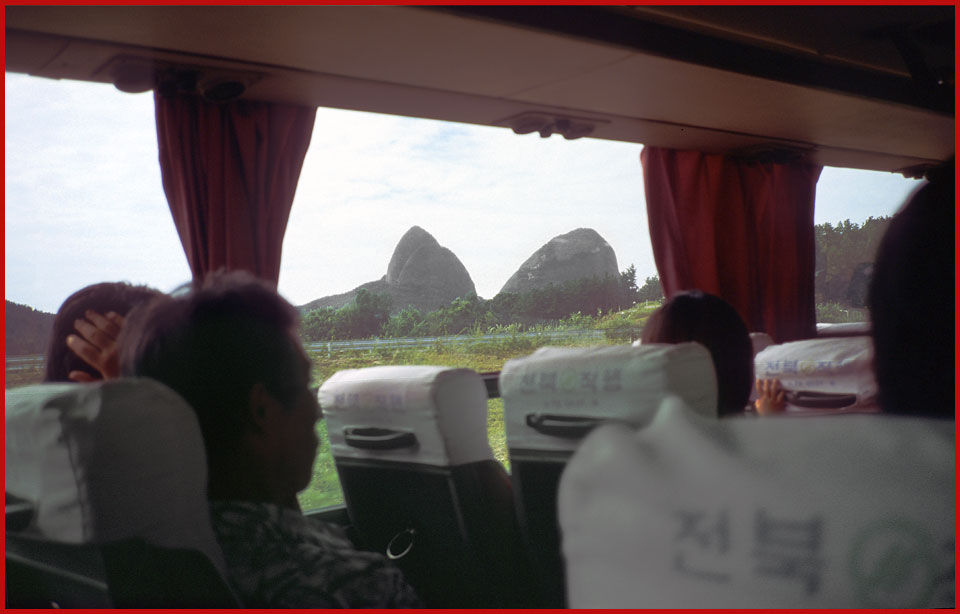
Maisan
- the twin Maisan peaks seen
from a bus window -
The peak to the left is Sut
Mai , - 678 m -, and the slightly taller one to the right is Am Mai of
685 m.
(Photography by Karsten Petersen)
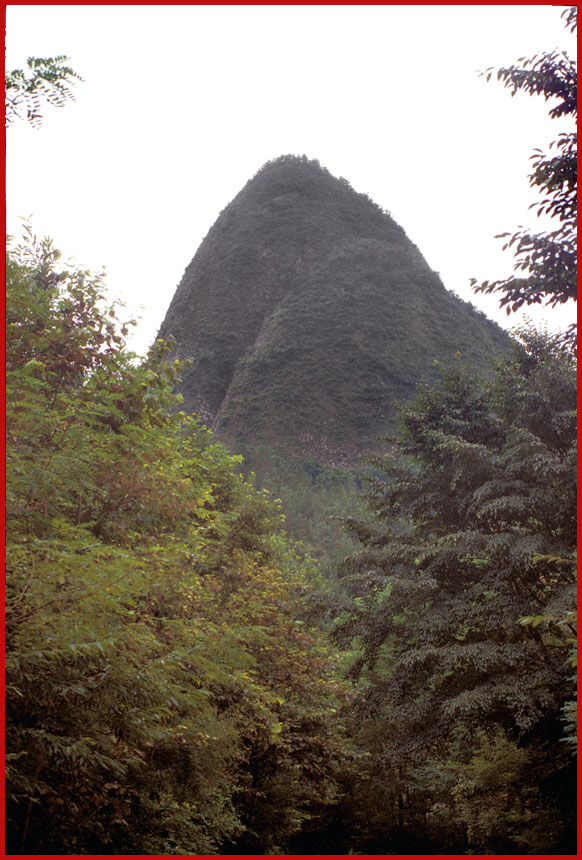
Maisan
- closing in on the twin peaks,
- here view to the Sut Mai -
(Photography by Karsten Petersen)
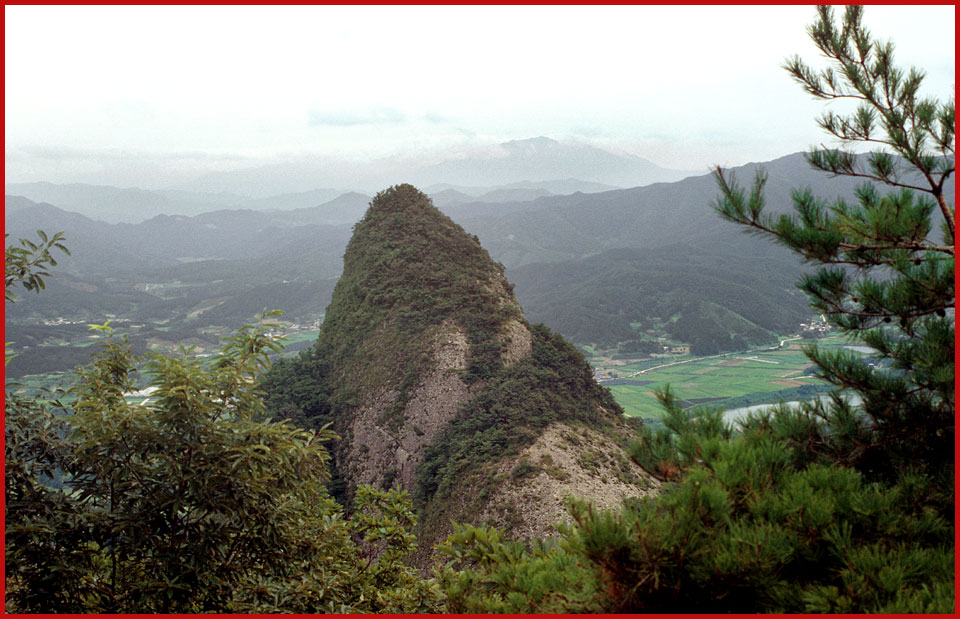
Maisan
- the view from Am Mai toward
Sut Mai -
(Photography by Karsten Petersen)
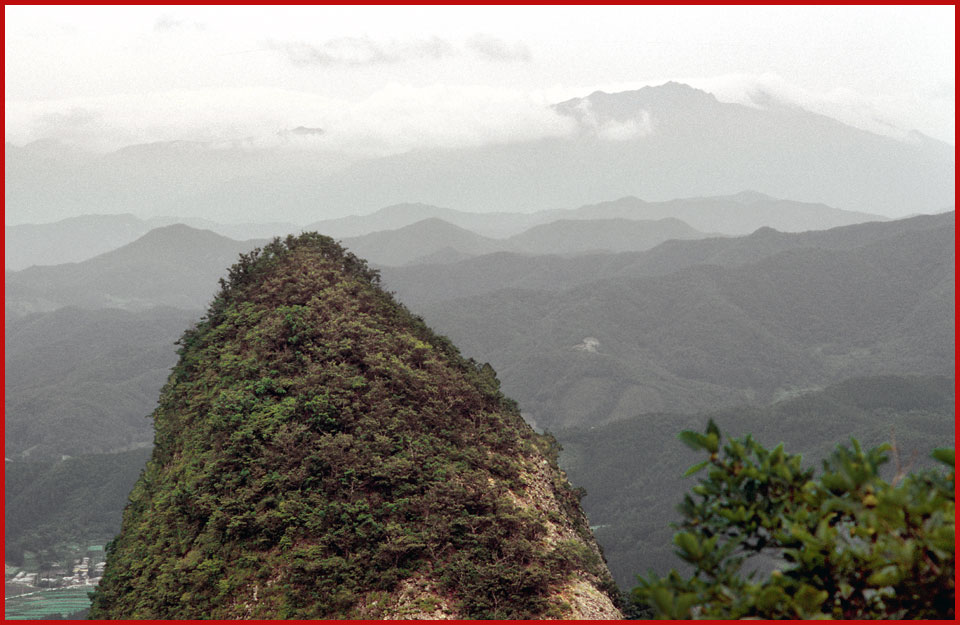
Maisan
- the top of Sut Mai -
(Photography by Karsten Petersen)

Maisan
- another view towards the
"female" peak Sut Mai -
Take note of the vertical crack
in the mountain side.
(Photography by Karsten Petersen)
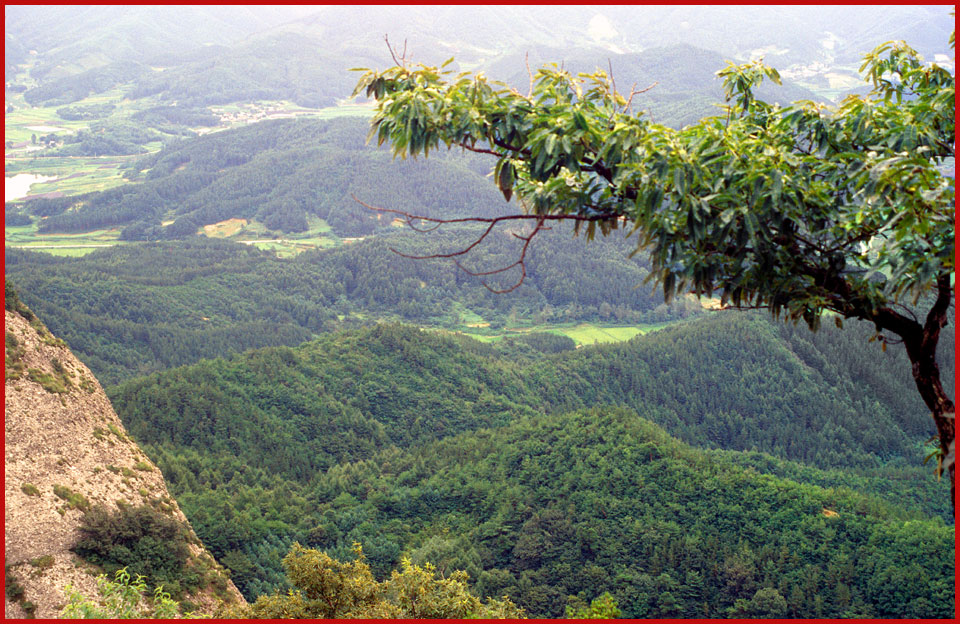
Maisan
- view from the top of Am Mai
-
(Photography by Karsten Petersen)
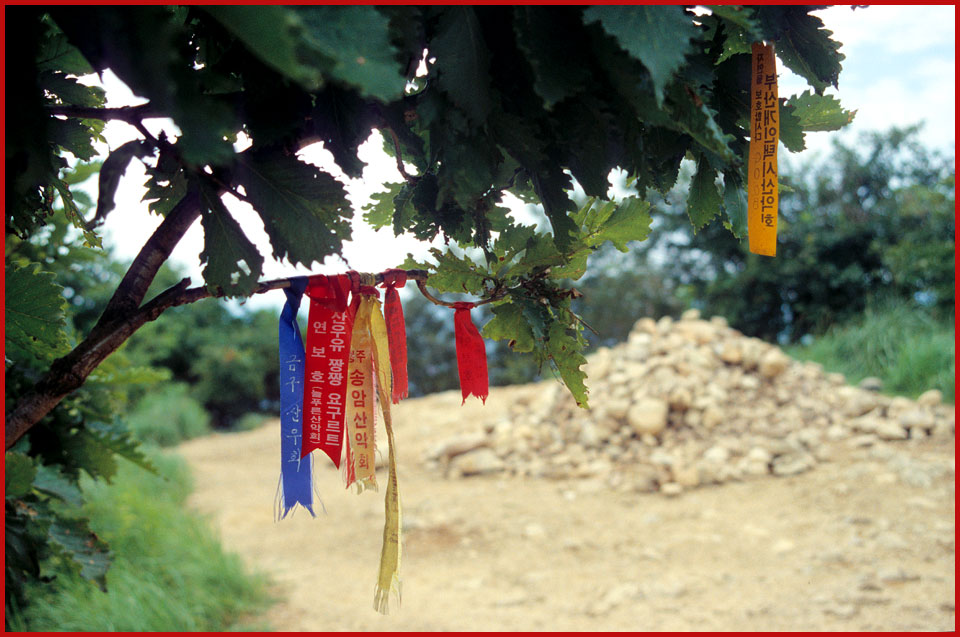
Maisan
- on the very top of Am Mai,
- coloured ribbons to the honour of "Mother nature" -
(Photography by Karsten Petersen)
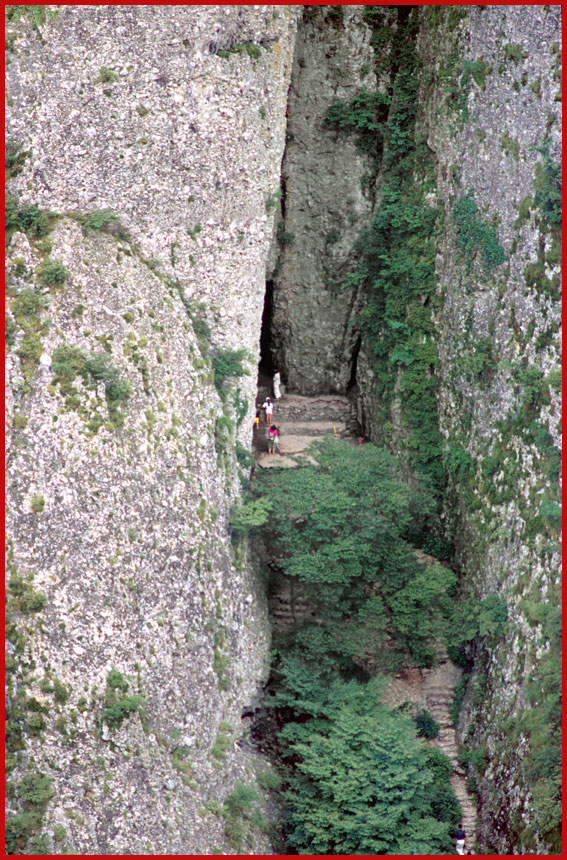
Maisan
- a closer view of the crack,
which leads up to a cave, which unfortunately was closed by a grating -
(Photography by Karsten Petersen)

Maisan
- a view in the opposite direction,
- from the cave in Sut Mai towards Am Mai peak -
(Photography by Karsten Petersen)
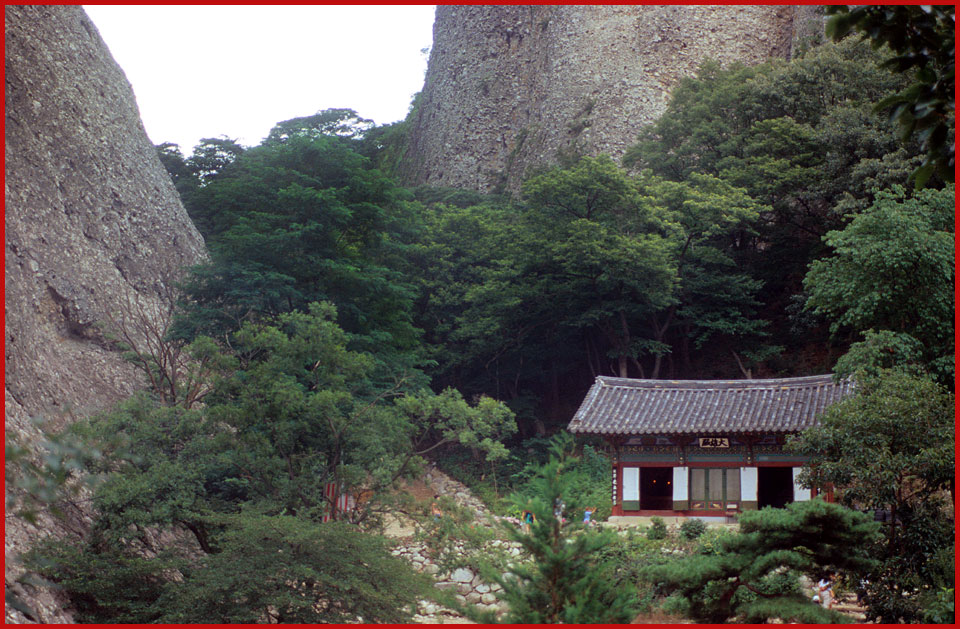
Maisan
- right between the two peaks
-, you find the small Unsusa temple -
(Photography by Karsten Petersen)
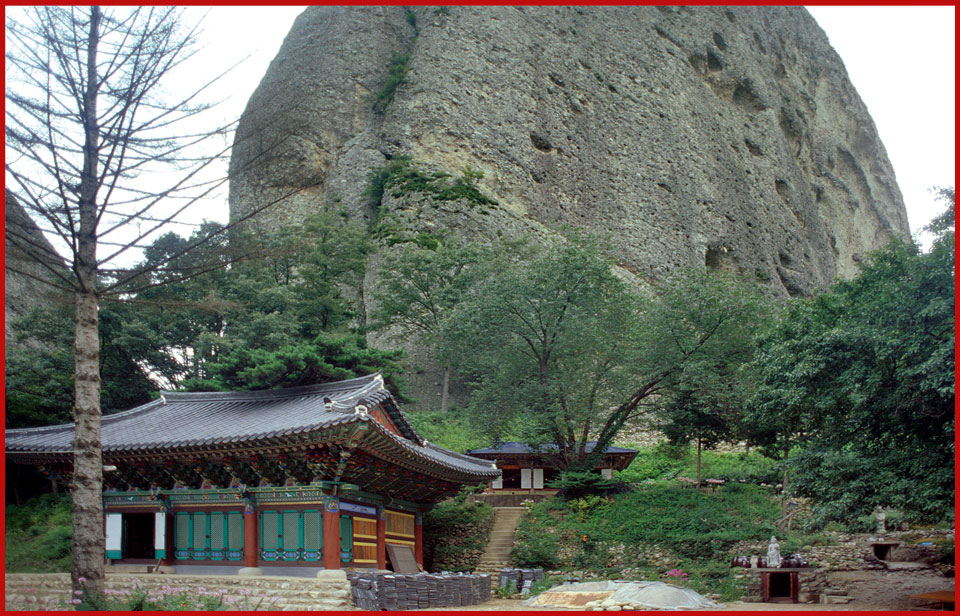
Maisan
- another picture of the Unsusa
temple complex in a stunning natural setting -
(Photography by Karsten Petersen)
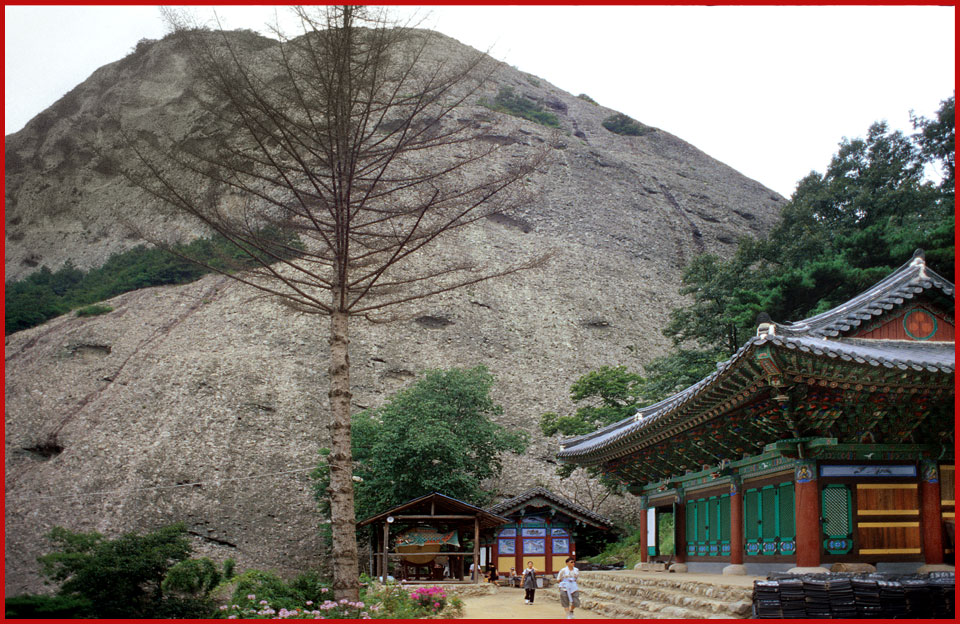
Maisan
- the Unsusa temple complex
under the twin peaks -
(Photography by Karsten Petersen)
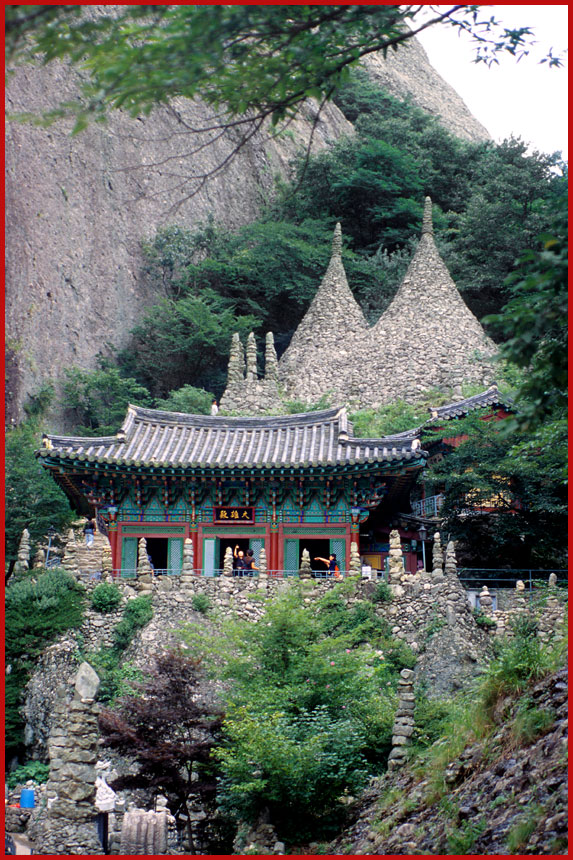
Maisan
- view to the Tapsa temple
with it's two famous stone pagodas behind -
(Photography by Karsten Petersen)
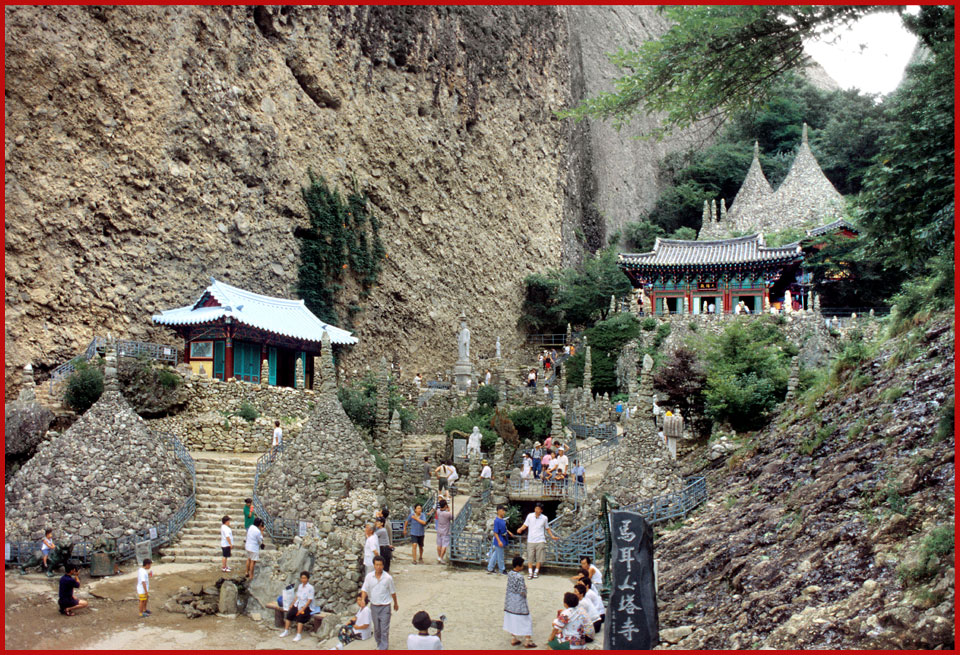
Maisan
- the Tapsa Temple site surrounded
by monk Yi's many stone pagodas -
(Photography by Karsten Petersen)

Maisan
- also in natural caves on
the vertical mountain side above you will find many pagodas -
(Photography by Karsten Petersen)
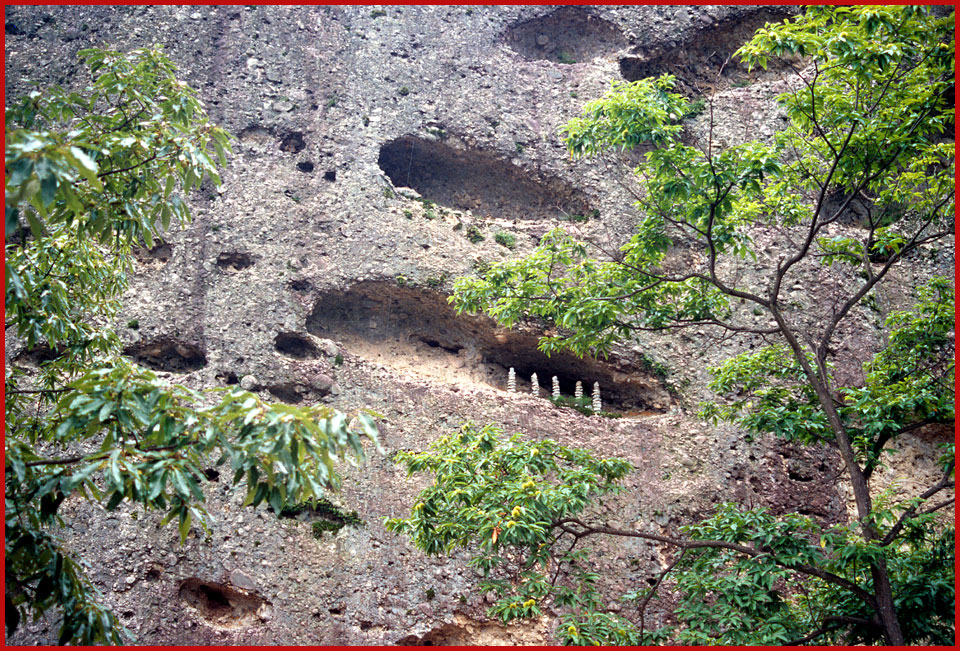
Maisan
- another look at the mountain
side -
(Photography by Karsten Pertersen)
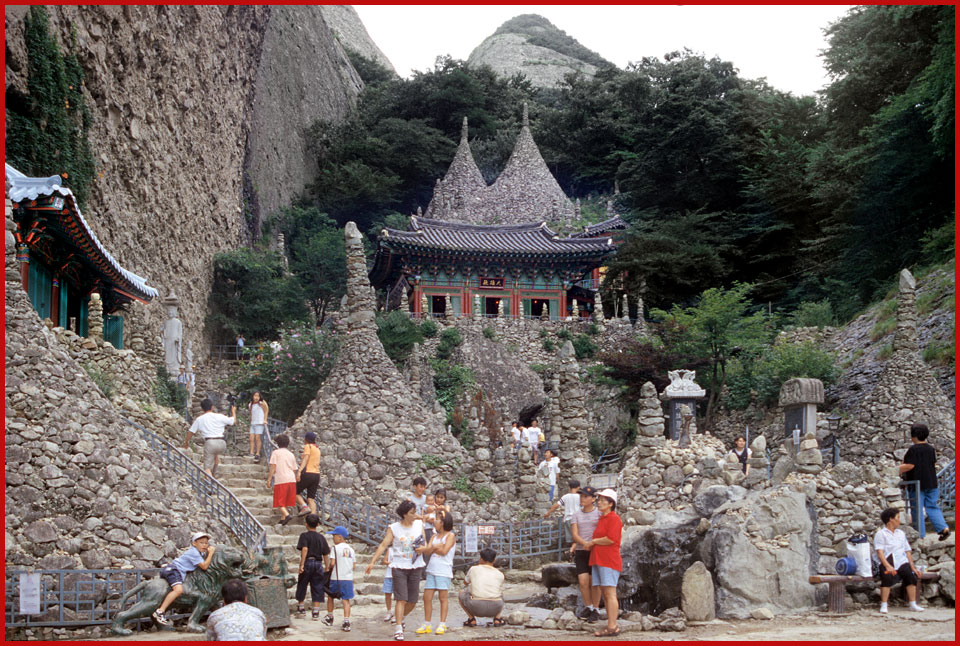
Maisan
- another view of the Tapsa
temple site -
(Photography by Karsten Petersen)
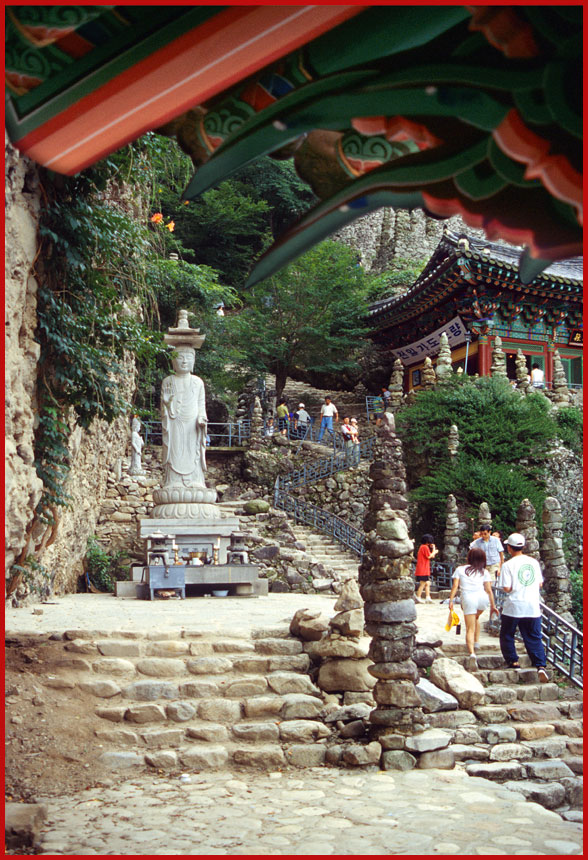
Maisan
- and more pagodas of all shapes
and sizes - -
(Photography by Karsten Petersen)
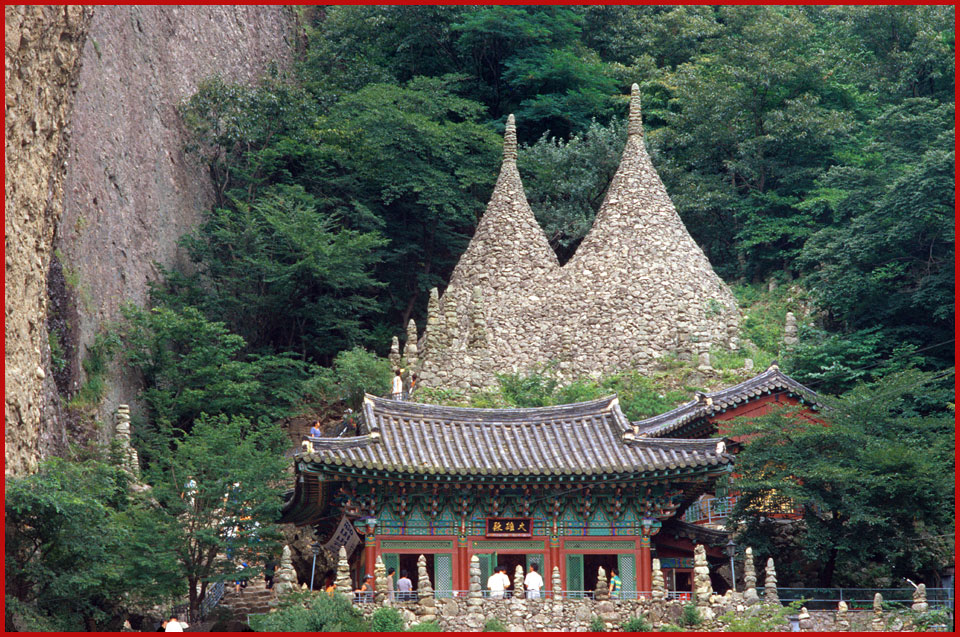
Maisan
- a closer view of Tapsa's
main hall with the two impressive 10 meters high stone pagodas behind -
(Photography by Karsten Petersen)
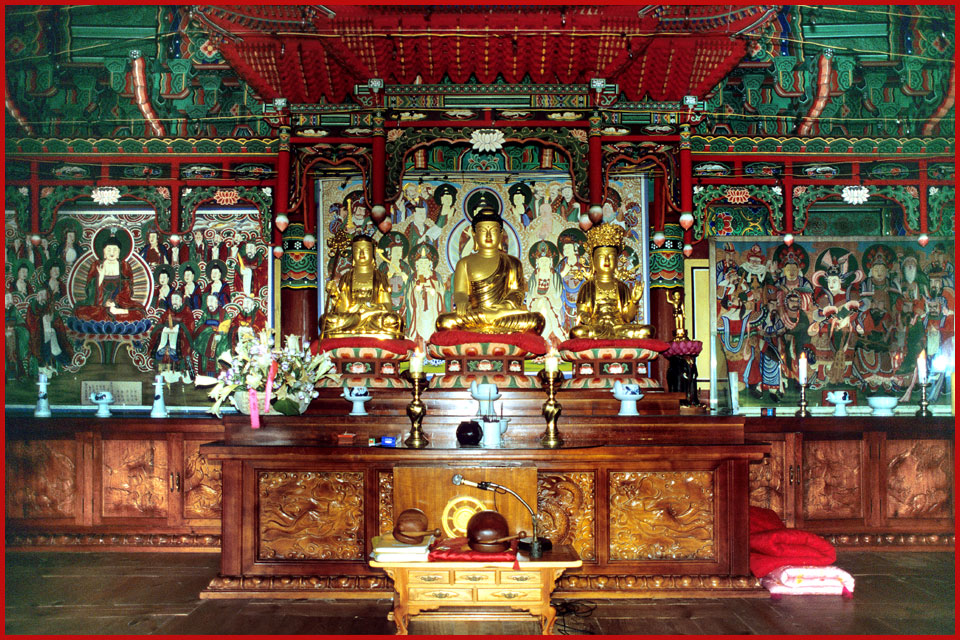
Maisan
- the interior of Tapsa temple
-
(Photography by Karsten Petersen)
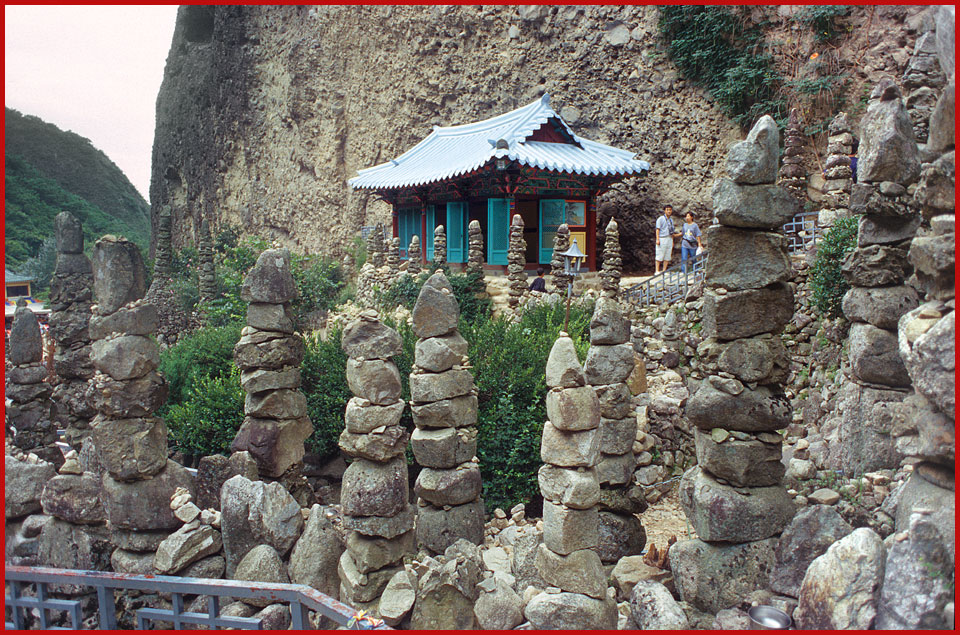
Maisan
- pagodas everywhere -
(Photography by Karsten Petersen)
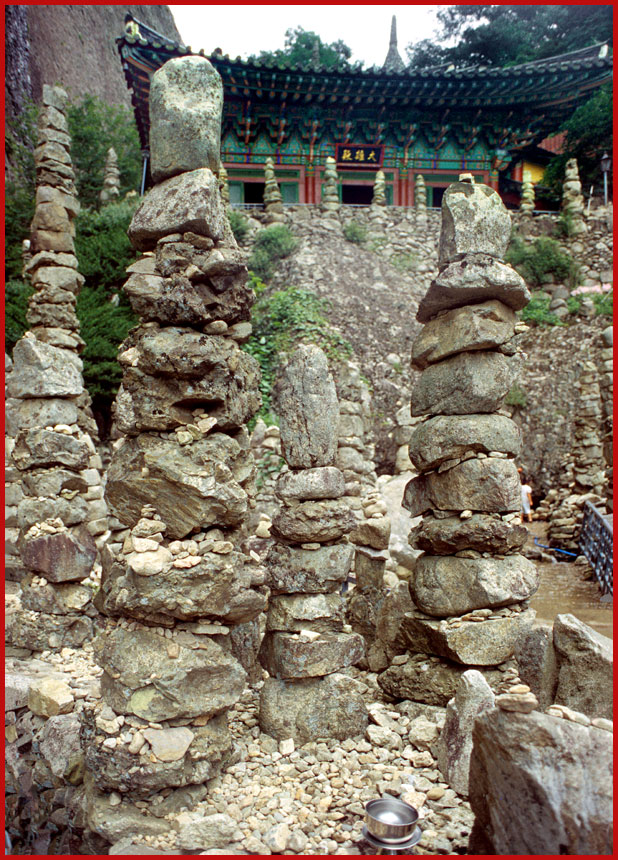
Maisan
- more stone pagodas and Kapsa
tempel -
(Photography by Karsten Petersen)
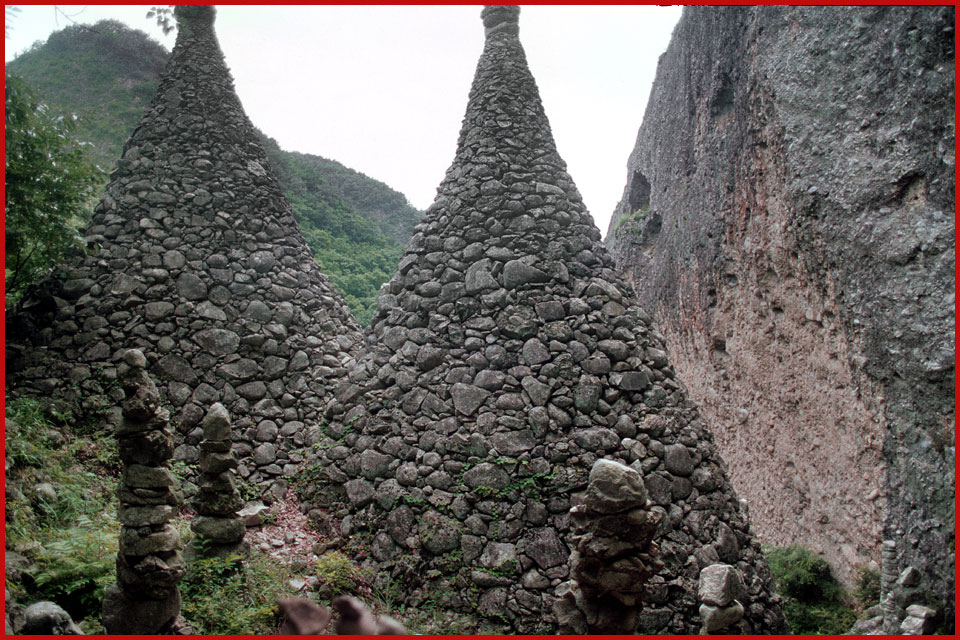
Maisan
- a closer look at the two
big pagodas,- about 10 meters high -
(Photography by Karsten Petersen)
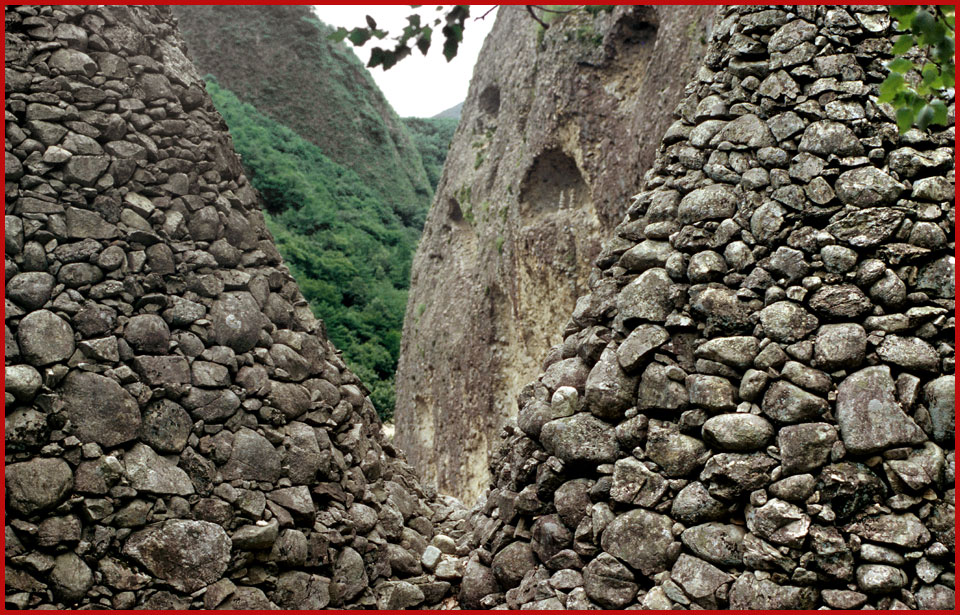
Maisan
- a look between the two big
pagodas towards Am Mai with caves and smaller pagodas -
(Photography by Karsten Petersen)
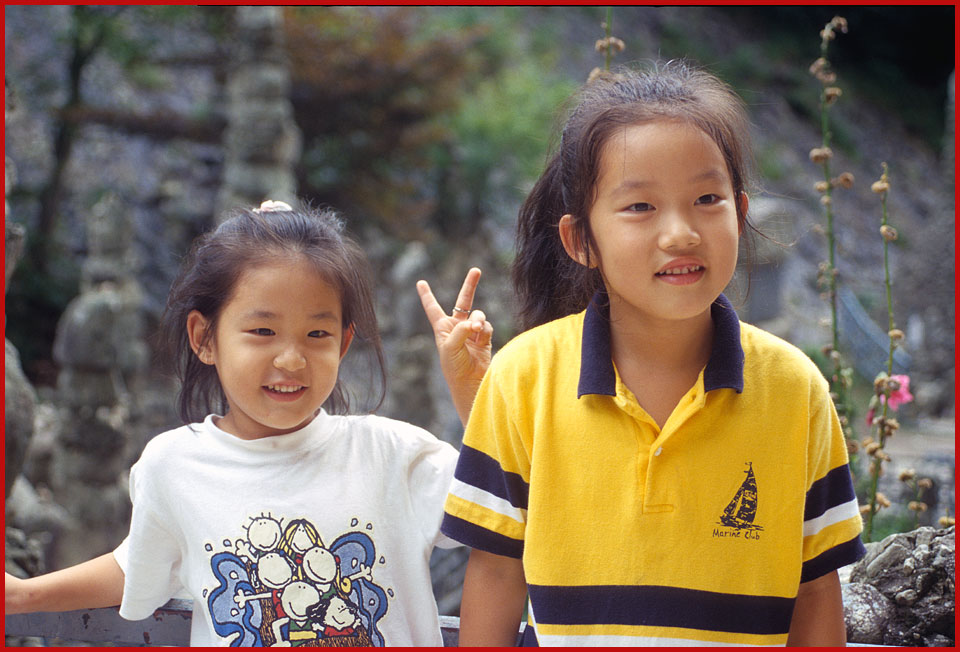
Maisan
- local tourists -